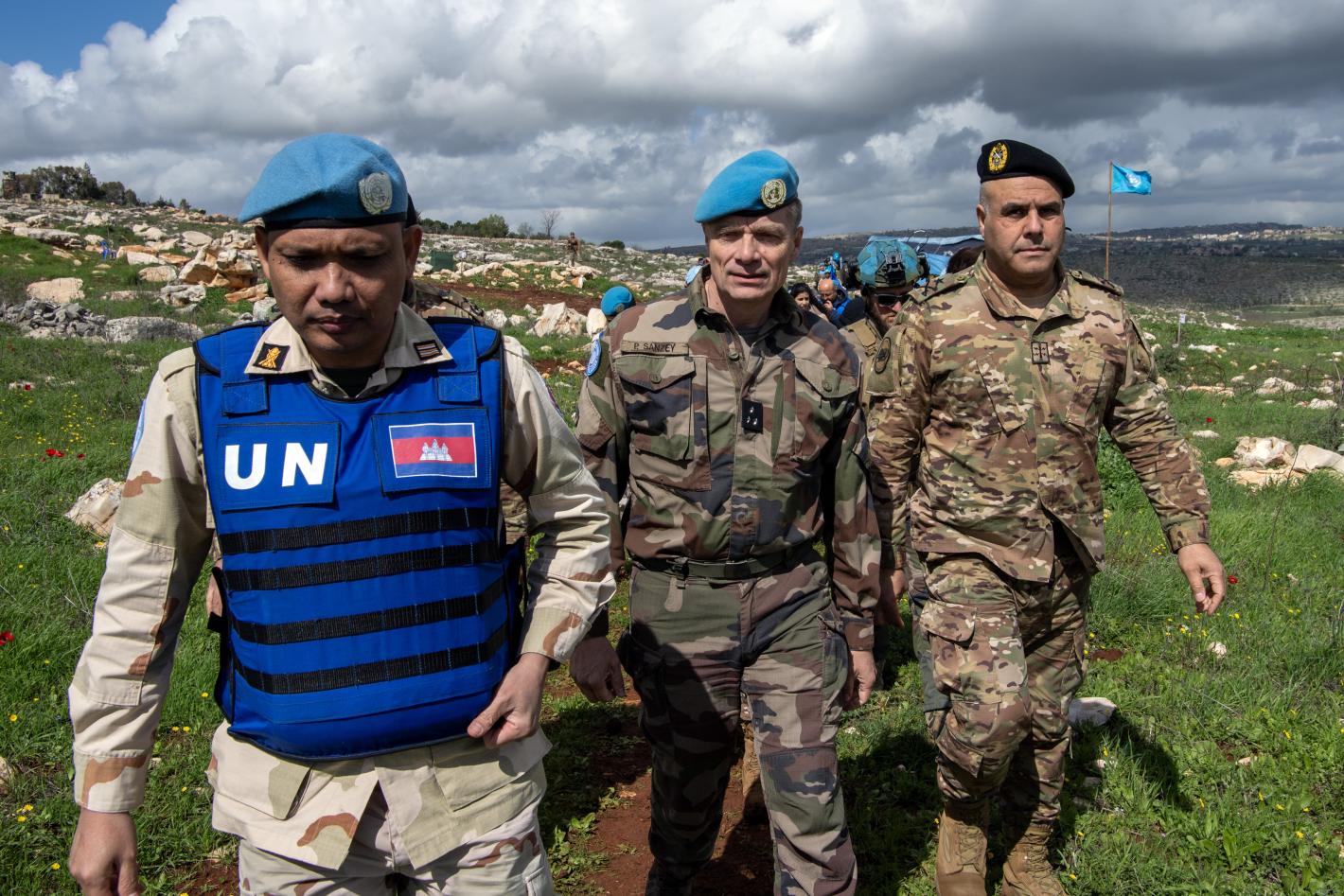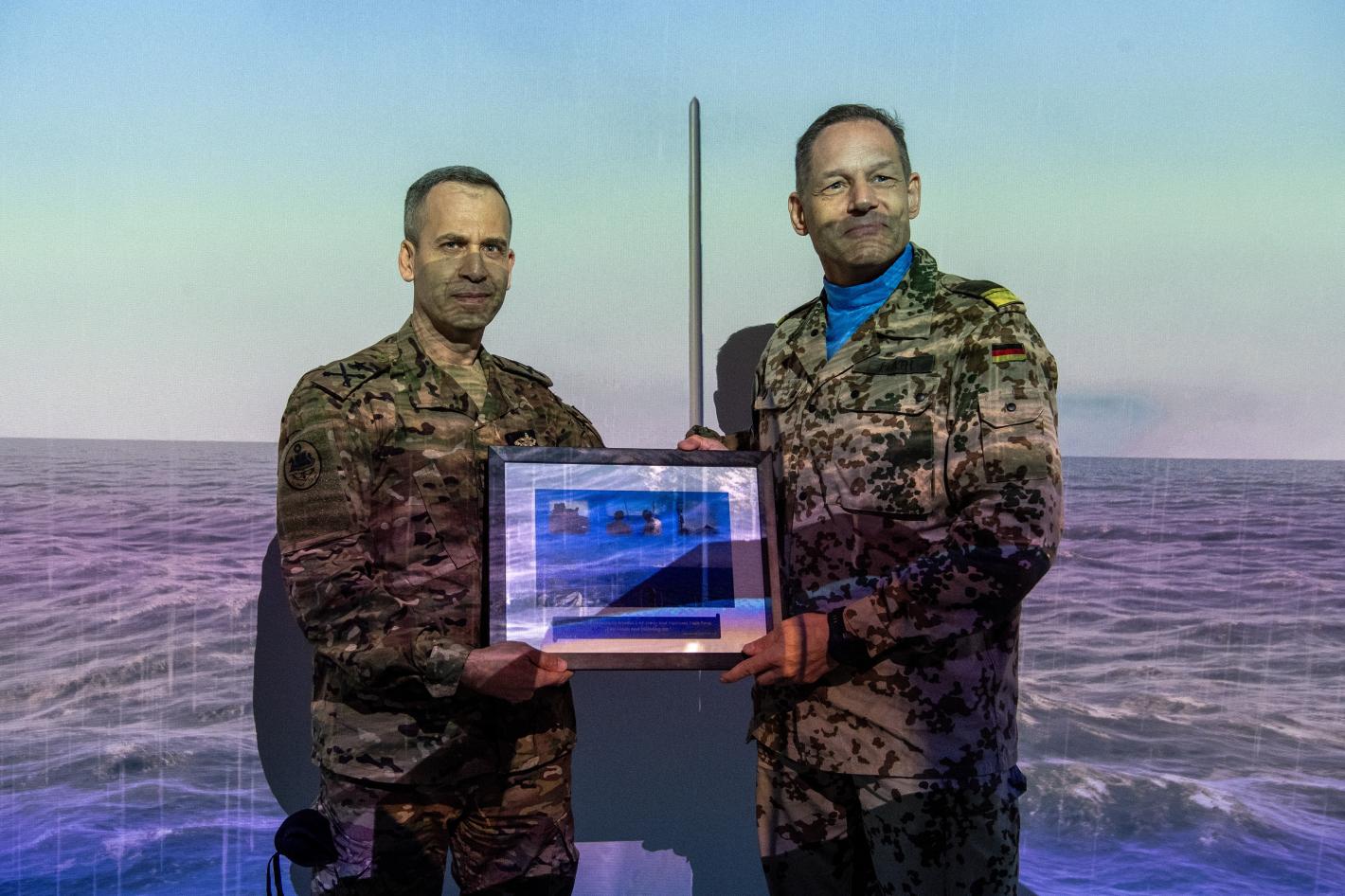Technical review to maintain operational effectiveness of the Mission
The United Nations Security Council, acting on the request of the Government of Lebanon, yesterday unanimously decided to extend without amendment the mandate of the United Nations Interim Force in Lebanon (UNIFIL) for a period of one year until 31 August 2010
The Security Council also welcomed the initiative of the UN Secretary-General for a technical review of the operational capacity of UNIFIL, including the force structure, assets and requirements. The review will be conducted during the coming months by UNIFIL and the UN Department of Peacekeeping Operations in an effort to ensure that the Mission's assets and resources are sufficient and configured most appropriately to fulfill its mandated tasks.
The mandate of UNIFIL and its tasks are determined by UN Security Council resolution 1701 [2006]. There has also been a Lebanese consensus supporting UNIFIL's mandate. UNIFIL's mission, deployment, concept of operations, the activities of its forces and rules of engagement are strictly defined and will remain within the framework of this mandate.
The robust nature of the force and rules of engagement notwithstanding, UNIFIL is a peacekeeping deployment founded on the consent of the parties and their willingness to abide by their respective obligations under resolution 1701. All parties are required to respect the cessation of hostilities and the Blue Line in its entirety, and to cooperate fully with UNIFIL. They also have to abide scrupulously by their obligation to respect the safety of UNIFIL, and to ensure that UNIFIL is accorded full freedom of movement within its area of operation.
All the troops deployed with UNIFIL are under UN command, which is exercised on the ground by the Force Commander, and they all operate in compliance with the same rules of engagement. The key element in this entire concept is for the peacekeepers to act in a fully impartial and objective manner. To that end, UNIFIL deals with all parties even-handedly.
UNIFIL also acts in a completely transparent way and keeps UN Headquarters and the Security Council fully and factually informed about all the developments on the ground and any violations of resolution 1701.
The focus of UNIFIL is on ensuring full respect for the relevant provisions of resolution 1701 and to prevent violations thereof, irrespective of who is the perpetrator. Sporadic incidents are promptly addressed through the established liaison and coordination arrangements of UNIFIL with the parties, the tripartite meetings chaired by UNIFIL being central to this mechanism.
The Lebanese Armed Forces (LAF) is the strategic partner of UNIFIL and this partnership has contributed to stabilising the situation on the ground. All UNIFIL's activities are carried out in close cooperation and coordination with the Lebanese Army. The LAF has primary responsibility for security and law and order in the area. On its part, UNIFIL, with its significant capability, is patrolling the area of operations, monitoring the cessation of the hostilities, and assisting the LAF in ensuring that the area between the Blue Line and the Litani River is free of any unauthorized armed personnel, assets and weapons.
UNIFIL is also conducting coordinated patrols and has set up collocated checkpoints with the LAF at key locations within its area of operations. Permanent checkpoints are established by the LAF to stop and search passing vehicles. Should specific information be available regarding movement or presence of unauthorized armed personnel, weapons or equipment, the LAF is required to take action. However, in situations where the LAF is not in a position to do so, UNIFIL is authorized to act and do everything necessary to fulfill its mandate in strict accordance with Security Council resolution 1701.
Out at sea, UNIFIL's Maritime Task Force has been deployed at the request of the Lebanese Government to assist the Lebanese Navy in securing the territorial waters and to help prevent the unauthorized entry of arms or related material by sea into Lebanon.
In implementing their mandate, all UNIFIL personnel may exercise the inherent right of self-defense. In addition, the use of force beyond self-defense may be applied in areas of deployment of UNIFIL troops, and within their capabilities, to resist attempts by forceful means to prevent UNIFIL from discharging its duties under the mandate of the Security Council; to protect UN personnel, facilities, installations and equipment; to ensure the security and freedom of movement of UN personnel and humanitarian workers; to protect civilians under imminent threat of physical violence; and to ensure that UNIFIL's area of operations is not utilized for hostile activities.
UNIFIL commanders have sufficient authority to act forcefully when confronted with hostile activity of any kind by any party, in the area of deployment of UNIFIL troops. The rules of engagement provide clear direction to the commanders on the degree and the manner in which force may be applied and give them the necessary flexibility to deal with any situation they may encounter on the ground.
UNIFIL relies on the strong support of the people of south Lebanon, and in turn is doing its utmost to assist and protect the local population and to ensure that stability prevails in the area.
UNIFIL currently has more than 12,000 military personnel, including about 700 serving in the Maritime Task Force, from 31 countries. The civilian component of UNIFIL numbers more than 300 international and some 700 national staff. Since the mission's establishment in 1978, there have been 280 fatalities of peacekeepers serving with UNIFIL.
*****
For further information, please contact Andrea Tenenti UNIFIL deputy Spokesperson:
Tel.: +961 1 827 068 (office); +961 70 910 064 (cell)
Fax: +961 1 827 016
Email: tenenti@un.org
View the UNIFIL website:
http://unifil.unmissions.org





